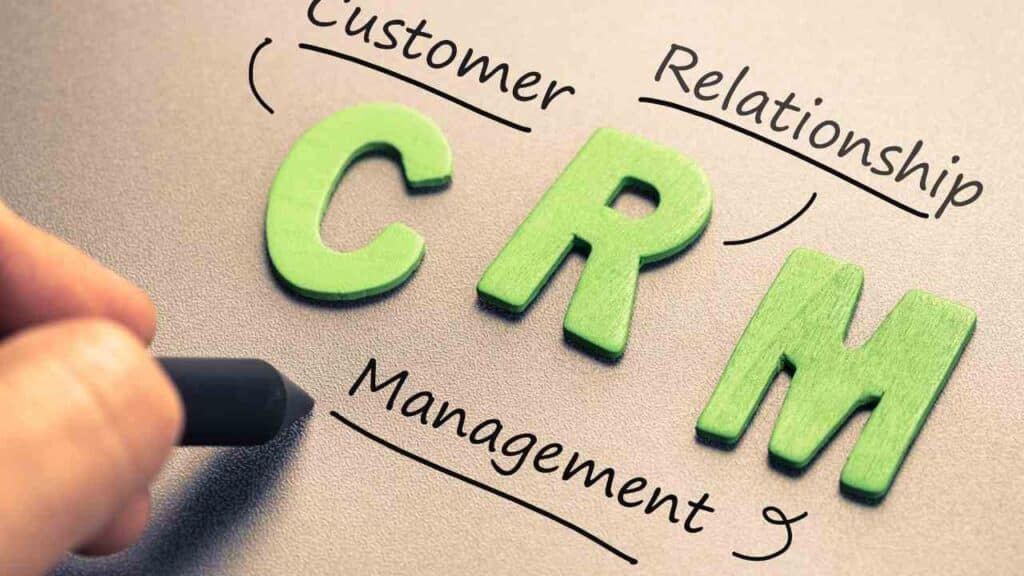Increasing Efficiency with Contact Management via CRM

Customer Relationship Management
Contact management is a critical aspect of any business, regardless of its size or industry. Keeping track of customer interactions, managing leads, and nurturing relationships are all essential for success. However, as businesses grow and customer bases expand, manual contact management becomes increasingly challenging and time-consuming. This is where Customer Relationship Management (CRM) software comes into play. In this article, we will explore how CRM can increase efficiency in contact management, providing valuable insights and examples along the way.
The Importance of Contact Management
Before delving into the benefits of CRM in contact management, it is crucial to understand why effective contact management is essential for businesses. Here are a few key reasons:
- Improved customer relationships: By keeping track of customer interactions, businesses can personalize their communication and provide a better customer experience.
- Increased sales: Efficient contact management allows businesses to identify and prioritize leads, resulting in higher conversion rates and increased sales.
- Streamlined communication: With proper contact management, businesses can ensure that the right message reaches the right person at the right time, minimizing miscommunication and improving efficiency.
- Enhanced productivity: By automating repetitive tasks and centralizing contact information, businesses can save time and focus on more value-added activities.
The Role of CRM in Contact Management
CRM software serves as a centralized hub for managing customer relationships, providing businesses with a range of tools and features to streamline contact management. Here are some ways CRM can increase efficiency:
1. Centralized Contact Database
One of the primary benefits of CRM is its ability to consolidate all contact information into a single, easily accessible database. Instead of scattered spreadsheets or physical files, businesses can store and organize contact details, including names, email addresses, phone numbers, and more, in one place. This eliminates the need for manual searching and ensures that contact information is always up to date.
For example, let’s consider a small marketing agency. Before implementing CRM, their contact information was spread across various platforms, making it challenging to find the right information quickly. With CRM, they can now access all client details, including past interactions and preferences, in a matter of seconds. This centralized database saves time and improves efficiency in managing client relationships.
2. Automated Data Entry
Manually entering contact information into a database can be a tedious and error-prone task. CRM software automates this process by capturing contact details from various sources, such as web forms or email signatures, and populating the database automatically. This eliminates the need for manual data entry, reducing the risk of errors and saving valuable time.
For instance, a real estate agency can integrate their website’s contact form with CRM. When a potential client fills out the form, the CRM system automatically captures the information and creates a new contact record. This automation ensures that no leads are missed and allows the agency to follow up promptly.
3. Streamlined Communication
CRM software provides tools for managing and tracking communication with contacts. Businesses can log emails, phone calls, meetings, and other interactions directly within the CRM system. This allows for a comprehensive view of all communication history, ensuring that no important details are overlooked.
For example, a sales team can use CRM to track their interactions with leads. They can see when an email was sent, whether it was opened, and if any follow-up actions are required. This streamlines communication and prevents leads from falling through the cracks.
4. Task Automation
CRM software offers automation capabilities that can significantly improve efficiency in contact management. Businesses can automate repetitive tasks, such as sending follow-up emails or scheduling reminders, freeing up time for more strategic activities.
For instance, a software development company can set up automated email sequences in CRM to nurture leads. Once a lead enters the CRM system, they receive a series of pre-defined emails at specific intervals. This automation ensures consistent and timely communication without manual intervention.
5. Advanced Analytics and Reporting
CRM software provides valuable insights into contact management through advanced analytics and reporting features. Businesses can track key metrics, such as conversion rates, customer lifetime value, and sales pipeline, to gain a deeper understanding of their contact management performance.
For example, an e-commerce business can use CRM analytics to identify the most effective marketing channels for acquiring new customers. By analyzing data on customer acquisition costs and conversion rates, they can allocate their marketing budget more efficiently and optimize their contact management strategies.
Real-World Examples
Let’s explore a few real-world examples of how businesses have increased efficiency with contact management via CRM:
Example 1: XYZ Corporation
XYZ Corporation, a global manufacturing company, implemented CRM to streamline their contact management processes. By centralizing contact information and automating data entry, they reduced the time spent searching for customer details by 40%. Additionally, the sales team leveraged CRM’s task automation capabilities to send personalized follow-up emails, resulting in a 20% increase in lead conversion rates.
Example 2: ABC Agency
ABC Agency, a digital marketing agency, struggled with scattered client information across multiple platforms. After implementing CRM, they consolidated all client details into a single database, improving efficiency in managing client relationships. The agency also utilized CRM’s reporting features to track the effectiveness of their marketing campaigns, leading to a 15% increase in customer acquisition and a 25% reduction in customer churn.
Contact management plays a crucial role in the success of any business. CRM software offers a range of features and benefits that can significantly increase efficiency in contact management. By centralizing contact information, automating data entry, streamlining communication, automating tasks, and providing advanced analytics, CRM empowers businesses to optimize their contact management processes and drive better results.
Implementing a CRM system, such as the all-in-one sales and marketing platform offered by SaasExpert.ca, can revolutionize contact management for small businesses, agency owners, and marketers. With its user-friendly interface and comprehensive features, SaasExpert.ca enables businesses to take control of their contact management and unlock their full potential.
Check out our “People Also Ask” section for more detailed information about CRM’s.
Learn more about “The Benefits of CRM for Contact Management” right here.
Frequently asked questions about Increasing Efficiency with Contact Management via CRM.

How does CRM enhance the efficiency of contact management? 📈
CRM systems are designed to centralize and organize all contact-related information. By doing so, businesses can quickly access customer data, track interactions, and ensure timely follow-ups. This centralized approach eliminates the need for manual data entry, reduces the risk of errors, and ensures that teams have a unified view of each contact. The result is faster response times, personalized customer interactions, and improved overall efficiency in managing contacts. 🌟
Can CRM systems integrate with other business tools to boost efficiency? 🔗
Absolutely! Modern CRM systems are built to seamlessly integrate with a plethora of business tools, from email marketing platforms to accounting software. This integration capability ensures that data flows smoothly across different tools, reducing manual data transfers and ensuring real-time updates. By integrating CRM with other tools, businesses can automate workflows, streamline processes, and enhance overall operational efficiency. 🚀
How does CRM automation contribute to efficient contact management? 🤖
CRM automation is a game-changer. It allows businesses to set up automated workflows for tasks such as sending follow-up emails, segmenting contacts, and scoring leads. This means that repetitive tasks are handled by the system, freeing up time for teams to focus on more strategic activities. Automation ensures that no contact is overlooked, and every interaction is timely and relevant, leading to enhanced customer satisfaction and operational efficiency. 💡
Are there CRM solutions tailored for specific industries to increase efficiency? 🌐
Yes, there are industry-specific CRM solutions designed to cater to the unique needs of different sectors. Whether it’s healthcare, real estate, finance, or retail, these specialized CRM systems come with features and functionalities that align with industry requirements. By using an industry-specific CRM, businesses can ensure that their contact management processes are optimized for their unique challenges and opportunities, leading to increased efficiency and better customer relationships. 🎯
How do CRM systems help in improving the quality of customer interactions? 💬
CRM systems provide a comprehensive view of each customer, capturing every touchpoint, preference, and feedback. With this wealth of information at their fingertips, businesses can tailor their interactions to meet the specific needs and preferences of each customer. Whether it’s sending personalized offers, addressing concerns promptly, or anticipating needs, CRM systems empower businesses to enhance the quality of their customer interactions, leading to increased loyalty and trust. 😊
- crm
- customer relationship management
- Increasing Efficiency with Contact Management via CRM
- What is CRM Software?






